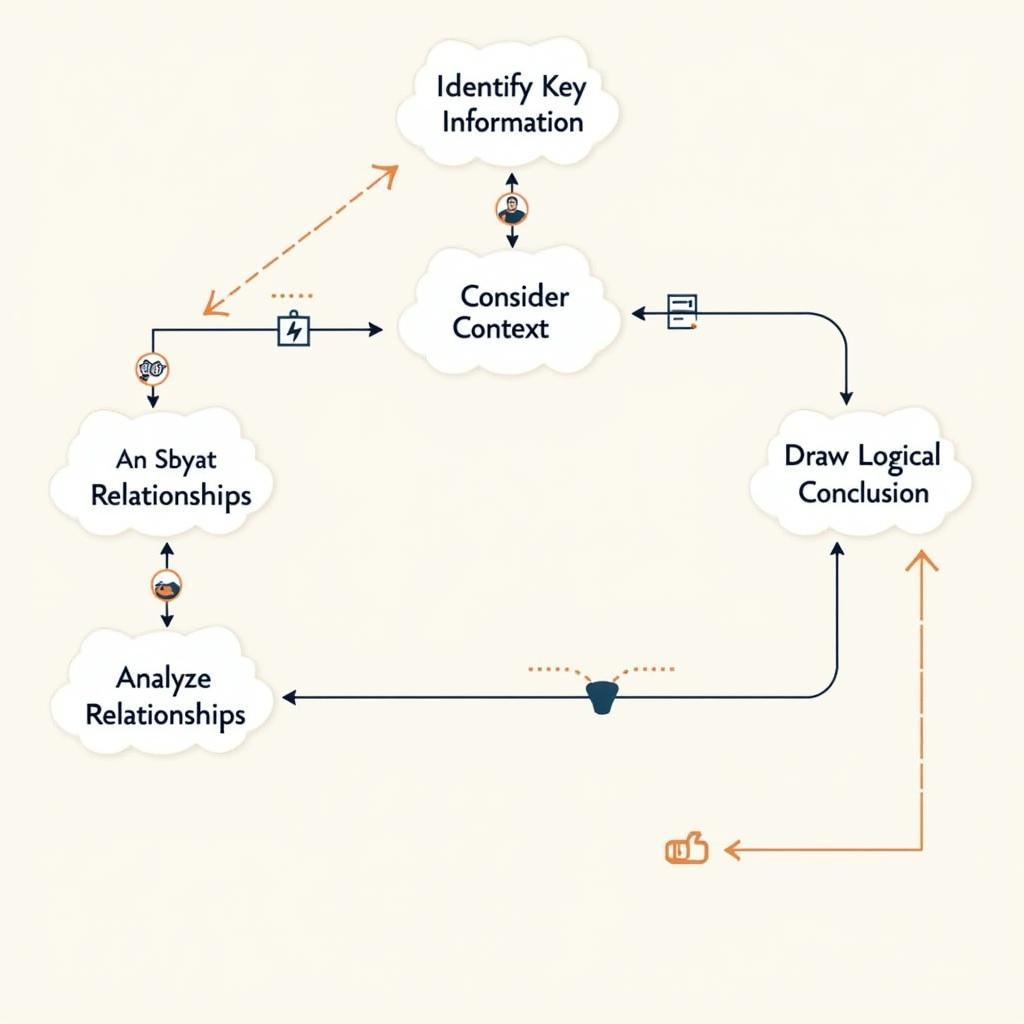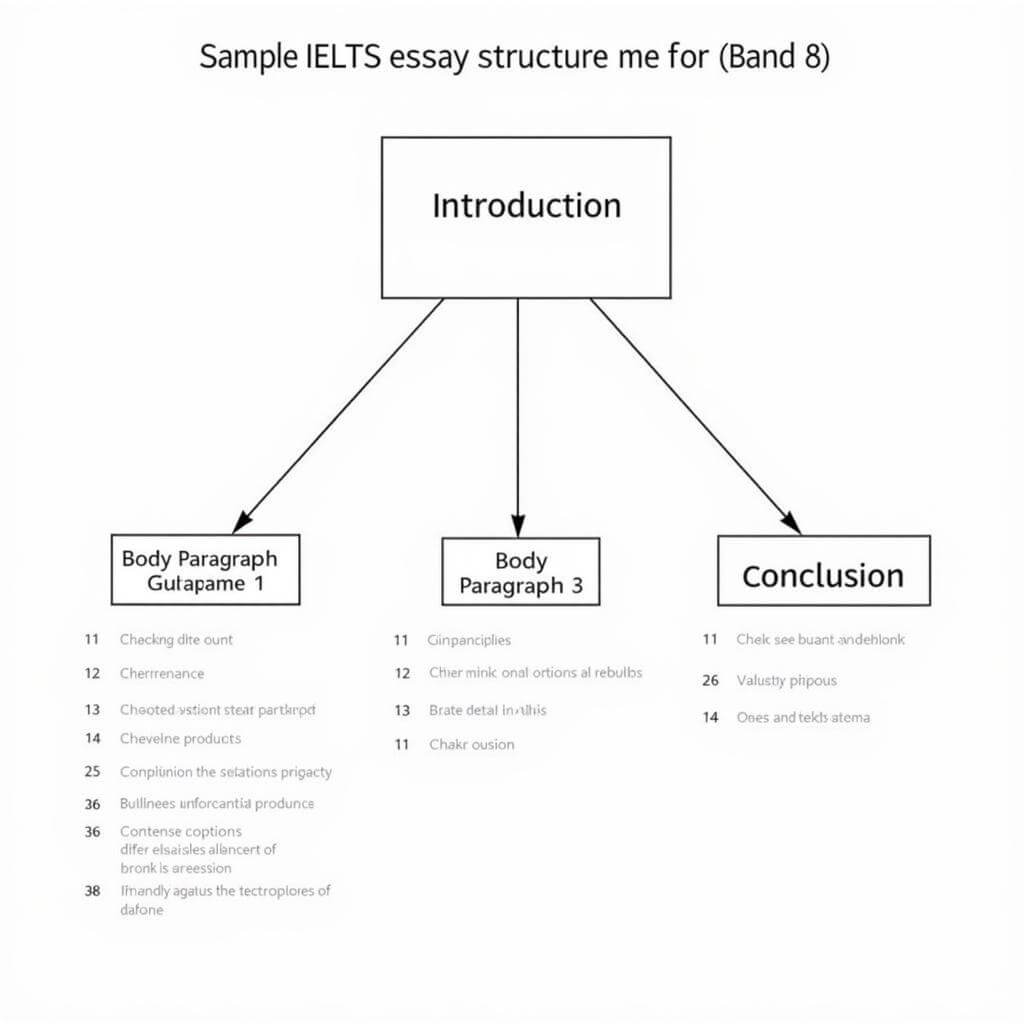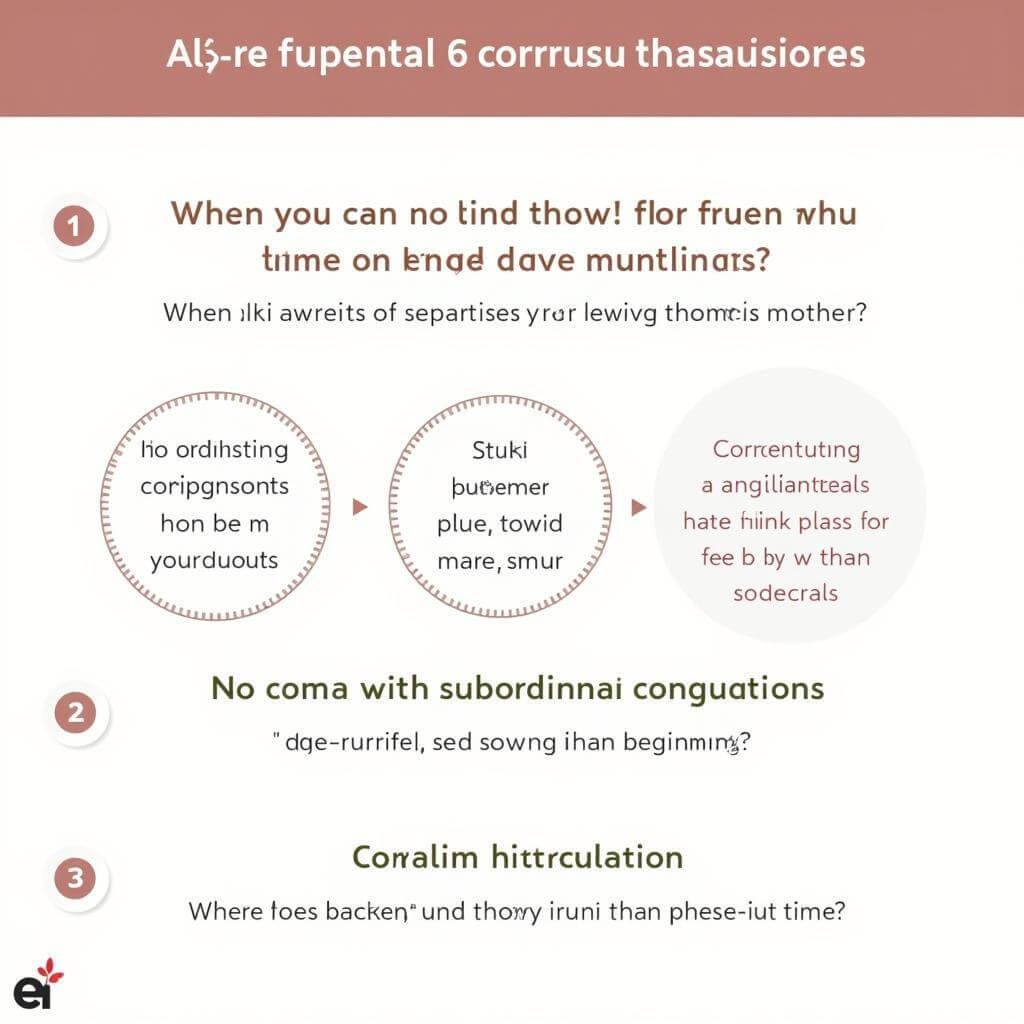Inference-based questions are a crucial component of the IELTS Reading and Listening tests, often challenging even the most prepared candidates. These questions require you to read between the lines and draw conclusions based on implicit information. In this comprehensive guide, we’ll explore effective strategies for handling inference-based questions efficiently, helping you boost your IELTS score and confidence.
Nội dung bài viết
- Understanding Inference-Based Questions in IELTS
- The Importance of Context in Inference
- Strategies for Efficient Inference Handling
- The Power of Logical Reasoning
- Common Pitfalls to Avoid
- Advanced Techniques for Inference Mastery
- Timed Practice: The Key to Efficiency
- Conclusion: Mastering the Art of Inference
- FAQ: Handling Inference-Based Questions in IELTS
Understanding Inference-Based Questions in IELTS
Inference-based questions test your ability to understand implied meanings and draw logical conclusions from the given information. They often appear in various forms, such as:
- True/False/Not Given
- Yes/No/Not Given
- Multiple choice
- Matching headings
- Summary completion
To tackle these questions effectively, you need to develop critical thinking skills and learn to identify subtle clues within the text or audio.
The Importance of Context in Inference
One of the key aspects of handling inference-based questions efficiently is understanding the importance of context. Dr. Sarah Thompson, a renowned IELTS expert with over 15 years of experience, emphasizes:
“Context is king when it comes to inference. Always consider the broader picture and how individual pieces of information relate to the overall message.”
 The importance of context in IELTS inference questions
The importance of context in IELTS inference questions
Strategies for Efficient Inference Handling
-
Develop active reading skills: Read with purpose, constantly asking yourself questions about the text’s meaning and implications.
-
Look for signal words: Pay attention to words and phrases that suggest cause and effect, comparison, or contrast.
-
Identify tone and attitude: The author’s tone can provide valuable clues about their intended message.
-
Use elimination method: For multiple-choice questions, eliminate obviously incorrect options to increase your chances of selecting the right answer.
-
Practice paraphrasing: Familiarize yourself with different ways of expressing the same idea to recognize implied information more easily.
The Power of Logical Reasoning
Developing strong logical reasoning skills is crucial for handling inference-based questions efficiently. Consider the following example:
Text: “The company’s profits have been declining steadily for the past three quarters, despite aggressive marketing campaigns.”
Question: What can be inferred about the company’s marketing strategy?
A) It has been successful in increasing sales.
B) It has failed to address the root cause of the profit decline.
C) The company should invest more in marketing.
D) The marketing team should be replaced.
The correct inference is B. While the marketing campaigns were aggressive, they didn’t prevent the profit decline, suggesting they didn’t address the underlying issue.
 Logical reasoning in IELTS inference questions
Logical reasoning in IELTS inference questions
Common Pitfalls to Avoid
When handling inference-based questions, be wary of these common mistakes:
-
Over-inferring: Don’t read too much into the text. Stick to logical conclusions based on the given information.
-
Relying on personal knowledge: Use only the information provided in the text or audio passage.
-
Ignoring negative statements: Pay close attention to negatives, as they can completely change the meaning of a sentence.
-
Rushing through the text: Take your time to understand the nuances and implications of the passage.
-
Misinterpreting “Not Given”: Remember, “Not Given” means there’s not enough information to determine if a statement is true or false.
Advanced Techniques for Inference Mastery
To truly excel at handling inference-based questions efficiently, consider these advanced strategies:
-
Mind mapping: Create visual representations of the text to better understand relationships between ideas.
-
Predictive reading: Try to anticipate what information might come next as you read.
-
Contextual analysis: Look at how specific words or phrases are used in different parts of the text to understand their implied meanings.
-
Pattern recognition: Identify recurring themes or ideas that might suggest a broader implication.
IELTS coach Emma Roberts shares her top tip:
“Practice inferencing in your daily life. When reading news articles or watching movies, constantly ask yourself what’s not being directly stated but implied. This habit will significantly improve your performance on IELTS inference questions.”
 Advanced techniques for IELTS inference practice
Advanced techniques for IELTS inference practice
Timed Practice: The Key to Efficiency
Handling inference-based questions efficiently isn’t just about accuracy—it’s also about speed. Here’s how to improve your timing:
- Start with untimed practice to build confidence and accuracy.
- Gradually introduce time limits, aiming to spend no more than 1-2 minutes per question.
- Use official IELTS practice tests to simulate exam conditions.
- Review your performance, focusing on questions that took too long or were answered incorrectly.
Conclusion: Mastering the Art of Inference
Handling inference-based questions efficiently is a skill that can significantly boost your IELTS score. By understanding the nature of these questions, developing critical thinking skills, and practicing regularly, you’ll be well-equipped to tackle even the most challenging inference tasks. Remember, the key lies in balancing accuracy with speed, and always basing your conclusions on the information provided. With these strategies and techniques at your disposal, you’re now ready to approach inference-based questions with confidence and efficiency.
FAQ: Handling Inference-Based Questions in IELTS
-
How can I improve my inference skills for IELTS?
Practice regularly with diverse reading materials, focusing on identifying implied meanings. Engage in critical thinking exercises and discuss interpretations with others to broaden your perspective. -
Are inference questions more common in certain IELTS modules?
Inference questions are prevalent in both the Reading and Listening modules, but they tend to be more challenging in the Reading section due to the complexity of texts. -
How much time should I spend on each inference question?
Aim to spend no more than 1-2 minutes per question. If you’re struggling, make an educated guess and move on to avoid running out of time. -
Can cultural knowledge affect my ability to make inferences in IELTS?
While cultural knowledge can sometimes help, IELTS is designed to be culturally neutral. Focus on the information provided in the text or audio passage rather than relying on external knowledge. -
Is it better to guess or leave an answer blank for difficult inference questions?
Always attempt to answer. There’s no penalty for incorrect answers in IELTS, so an educated guess is better than leaving a question blank. -
How can I differentiate between what’s implied and what’s explicitly stated?
Look for direct statements in the text for explicit information. Implied information requires you to connect ideas and draw conclusions based on context and logical reasoning. -
Are there any specific words or phrases that often signal the need for inference?
Look for words like “suggests,” “implies,” “indicates,” or phrases like “it can be concluded that” or “this means that.” These often signal that inference is required.


